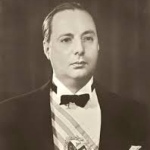Background
José Batlle Ordóñez was born om 21 May 1856 in Montevideo. . He was the son of President Lorenzo Batlie.

politician president Public figure
José Batlle Ordóñez was born om 21 May 1856 in Montevideo. . He was the son of President Lorenzo Batlie.
Left the University of Montevideo before receiving a degree, but pursued further studies in France.
In 1886 he founded the daily newspaper El Día in Montevideo, as the principal organ of the Colorado Party, and thereafter rose in the party’s ranks, being elected senator in 1898. In that period, Uruguay continued to be dominated by the pattern of military/party dictatorships which had been characteristic of most of the nineteenth century.
José Batlie was first elected president of Uruguay in 1903 and almost immediately had to face an insurrection of the opposition Blanco Party, led by Aparicio Saravia, which he succeeded in suppressing. He sent to Congress bills for labor legislation which were not passed until his second term. However, his proposals for legalizing divorce and for establishing secondary schools in every provincial city were passed.
After leaving the presidency the first time, José Batlie spent considerable time in Europe, studying economic, social, and political reforms in those countries. He was particularly impressed with the plural presidency in Switzerland.
Elected again as president in 1911.
Few Latin American leaders have had as large an impact on their own countries as did Batlle. However, for a generation after his death, his heirs largely rode on the reforms that had characterized his period, without introducing significant modifications to deal with new problems. For a short while in the 1930s, and then between 1973 and 1985, the result was a subversion of the political democracy that Batlle had established.
José Batlie was responsible in his second term for many reforms. He strongly supported the labor movement but did not try to exert government control over it. His proposals resulted in establishing a social security system and in government development of the economic infrastructure. Among the state firms established on his initiative were a government insurance company which 20 years later was writing three-fourths of the country’s policies; a government monopoly of electricity and telephone services; and a government firm dominating the petroleum and alcohol industries. He also established government control over the port works of the city of Montevideo, which were considerably expanded.
After leaving the presidency for a second time, Batlie intensified his campaign for the proposal which he had suggested during his second term—to establish a nine-man presidency, two-thirds of whom would represent the majority party and one-third the second largest party. He saw this kind of presidency as both a means of curbing the dictatorial inclinations of the country’s presidents, and the tendency of the opposition to resort to coups instead of the electoral process (since in any case they would be represented in the executive power). This proposal was strongly opposed by the opposition Blancos and by a minority of the Colorado Party, which became split between Batllistas and anti-Batllistas.
When Batlle threatened to run for president for a third time, however, his opponents agreed, in the constituent assembly of 1918, to adopt a modified form of the collegiate presidency: a president and a National Council of Administration of nine members, which would have some of the powers which the president had formerly had. In 1926 Batlle served as head of the National Council of Administration.

